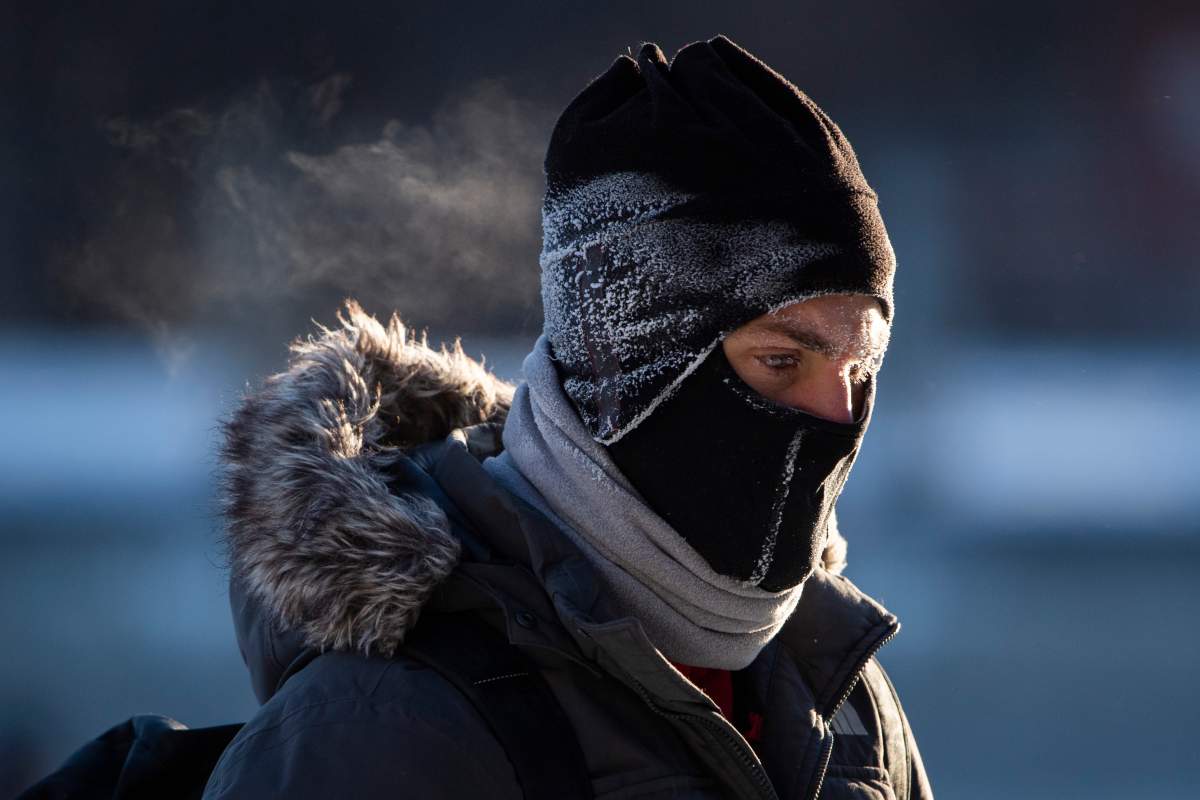The Middlesex-London Health Unit (MLHU) on Thursday issued its first cold weather alert of the year as Environment Canada calls for frigid wind chill values to end the work week.

Before the alert comes into effect, London and its surrounding area will be under a snow squall warning, which was issued by Environment Canada shortly after 5 p.m. Thursday.
The warning, which also covers Komoka, Parkhill, Strathroy and Middlesex County, calls for brief, but intense, periods of snowfall starting early Thursday evening.
The squalls stem from bands of heavy snow moving through the area with the passage of an arctic cold front. There is also the chance of winds gusting up to 60 km/h which, combined with heavy snow, can produce near zero visibility.
Drivers are advised to prepare for quickly changing and deteriorating travel conditions.
Elsewhere, Toronto, as well as a large swath of southern Ontario, is under an extreme cold weather warning from Environment Canada, as frigid temperatures are expected to hit those areas late Thursday night.
As for the MLHU’s cold weather alert, it will come into effect just after midnight on Friday as temperatures drop overnight to a low of -14 C, feeling like -22.
The bitter cold will remain through the day Friday, with temperatures hovering around -12 C, feeling near -23 in the afternoon. Flurries are also expected along with 30 km/h winds gusting to 50.

Get daily National news
Health officials say the cold weather alert will be lifted once wind chill values rise above -20, the health unit’s cold weather alert threshold. Saturday’s high is expected to be -4 C.
In a statement, David Pavletic, the health unit’s food safety and healthy environments manager, said Londoners are advised to curb the amount of time they spend outdoors, if possible, to avoid frostbite and hypothermia.
“With a milder winter season so far, these drastic changes in temperature can take a negative toll on our bodies and our health if we aren’t properly protected,” he said.
According to Environment Canada, the mean temperature for the month of January was -0.9 C, and at least 21 days saw highs above freezing, the warmest being Jan. 17 with a high of 8.2 C. The coldest day of the month was Tuesday, with a recorded high of -7.7 C and a low of -14.3 C.
City warming centres will be open as a result of Friday’s biting cold. More information about extreme cold, hypothermia and frostbite can be found on the health unit’s website.












Comments
Want to discuss? Please read our Commenting Policy first.